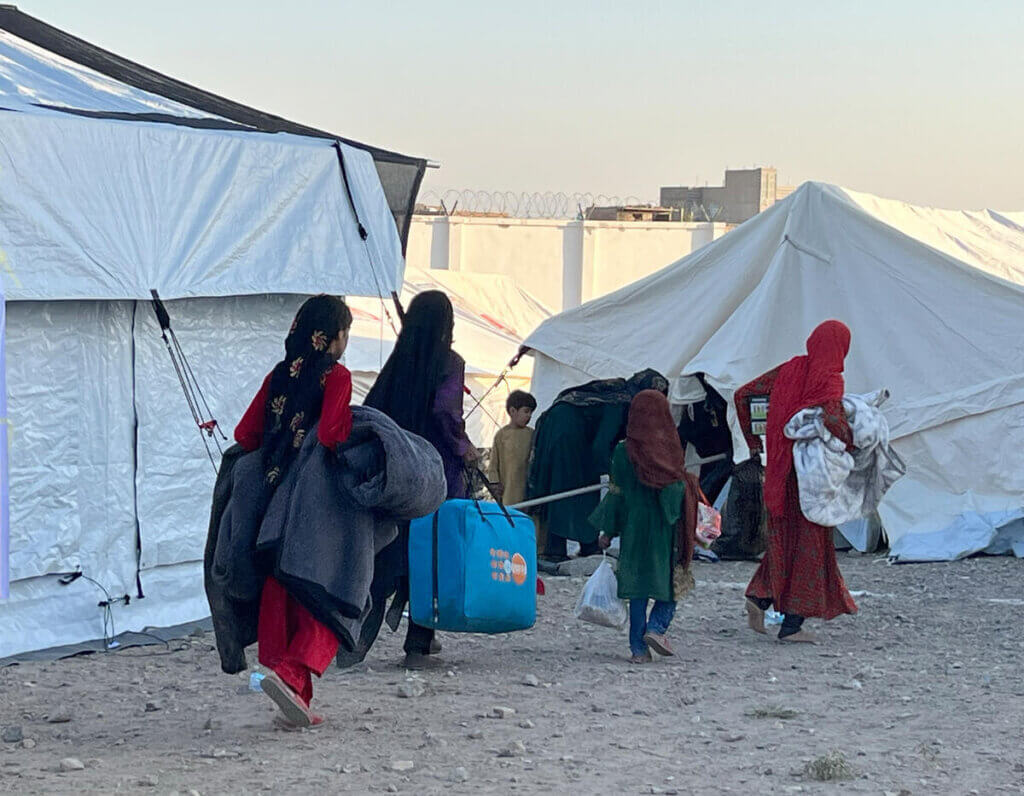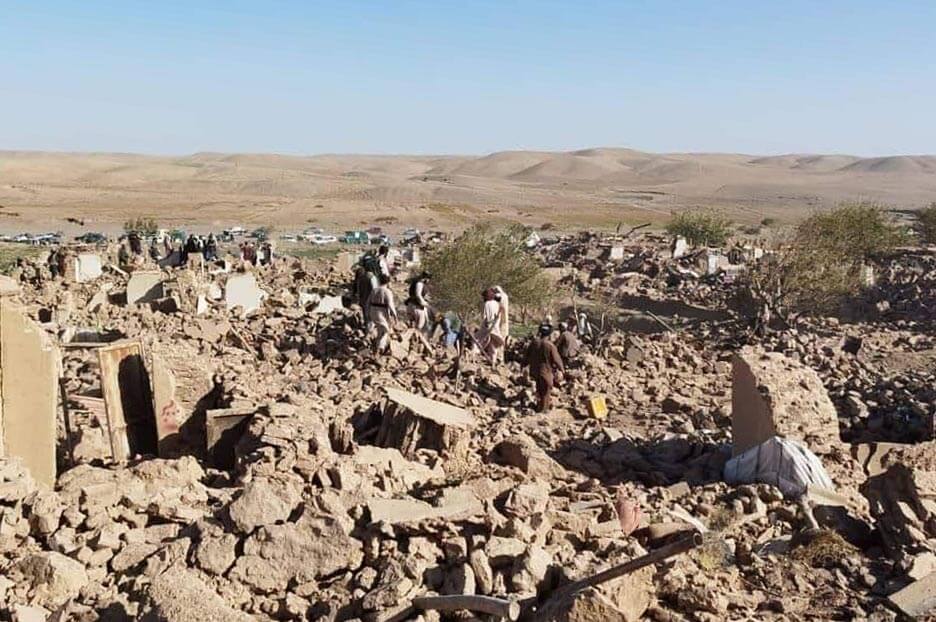UNFPA is there for Women and Girls Surviving the Earthquake Crisis in Afghanistan
⚠️ 15 October: A fourth earthquake of 6.3 magnitude and above is registered in the region, resulting in even more devastation. Residents of the area are living in constant fear of another earthquake.
⚠️ 11 October: A second massive earthquake struck the same region. The crisis has impacted 12,100 people, including 3,000 women of reproductive age. 183 of these women are currently pregnant. Around 1,410 teenage girls are also affected. The number of affected people is expected to rise as survivors are recovered from the wreckage.
⚠️ 8 October, 10 p.m.: More than 1,000 people are reported to have been killed and 1,663 people injured across eleven villages. The earthquake destroyed 100 percent of homes in the region. In one village of 2,500 people, almost all women and girls died. The only survivors were men working outside the home.
⚠️ 7 October 2023, approximately 11:03 a.m. local time: An earthquake of 6.3 magnitude struck the western region of Afghanistan. The area subsequently experienced a series of eight aftershocks within a five-hour period.
UNFPA is on the ground responding to the earthquake emergency. Our immediate priority is to meet the needs of women and girls for emergency health care, including maternal and reproductive health care; for protection, including mental health services; for emergency shelter and non-food items; as well as for food, water, and sanitation. We are distributing dignity kits so women and girls can care for themselves and manage their periods. Given the ongoing search-and-rescue operations and the potential for more casualties, the situation remains dynamic, and further support will be necessary to help affected communities.

Women and girls in Afghanistan were already surviving the unimaginable before this earthquake emergency.
Political instability, rapid economic decline, and three years of consecutive drought have led to food insecurity and widespread hunger. Further, women and girls have continued to see their rights curtailed. This devastating earthquake further puts their lives at risk.
Millions of Afghans have little or no access to health care. The country remains on of the world’s most dangerous places to give birth. In fact, one woman dies every two hours from pregnancy or childbirth complications in Afghanistan.
Humanitarian aid is very limited in Afghanistan, and we are one of the organizations on the ground delivering care. We urgently need your support to continue our lifesaving work.

We are on the ground delivering lifesaving care.
Already, we have:
– Sent three mobile health teams to earthquake-affected areas
– Deployed additional staff from four basic health centers to support medical services in major treatment centers
– Deployed five counselors to provide mental health counseling in temporary shelters
– Distributed 160 Dignity Kits containing essential supplies like underwear, soap, and menstrual pads, to affected women and girls
More supplies are ready for distribution as needed: 4,190 dignity kits, 24,000 blankets so Afghans can brave the dropping temperatures, 27,600 tarpaulin sheets so families can stay dry while they sleep outside, 1,400 mama kits, and 2,000 emergency birth kits.
Dignity Kits contain essential personal care supplies including menstrual pads, underwear, a head covering, and more. Emergency Birth Kits contain items such as a gloves, a sterile razor, a plastic sheet, soap, gauze pads, and more to prevent infection when a woman has to give birth outside a health facility. Mama Kits contain items that support the hygiene needs of mothers and their babies after delivery, including soap, underwear, socks, shampoo, toothpaste, skin moisturizer, washcloths, towels, a blanket, a water bottle, and more.
Our Ongoing Work in Afghanistan
Across Afghanistan we operate 360 Family Health Houses, staffed by community midwives that support safe births in some of the most remote areas of the country. We have mobile health teams working in 27 provinces, screening mothers, pregnant women, and children for malnutrition and providing maternal and child health care. Additionally, our mental health counseling centers, located in provincial and district-level government hospitals, provide free, confidential services to women and girls. But, with women and girls on the move, living outside or in shelters, and with the breakdown of reporting and justice pathways in the aftermath of this emergency, they are more vulnerable to violence.
We need your support to expand our lifesaving maternal health and protection services to women and girls. Please make a donation today and provide women and girls surviving the earthquake emergency in Afghanistan and those facing crises around the world with essential support.